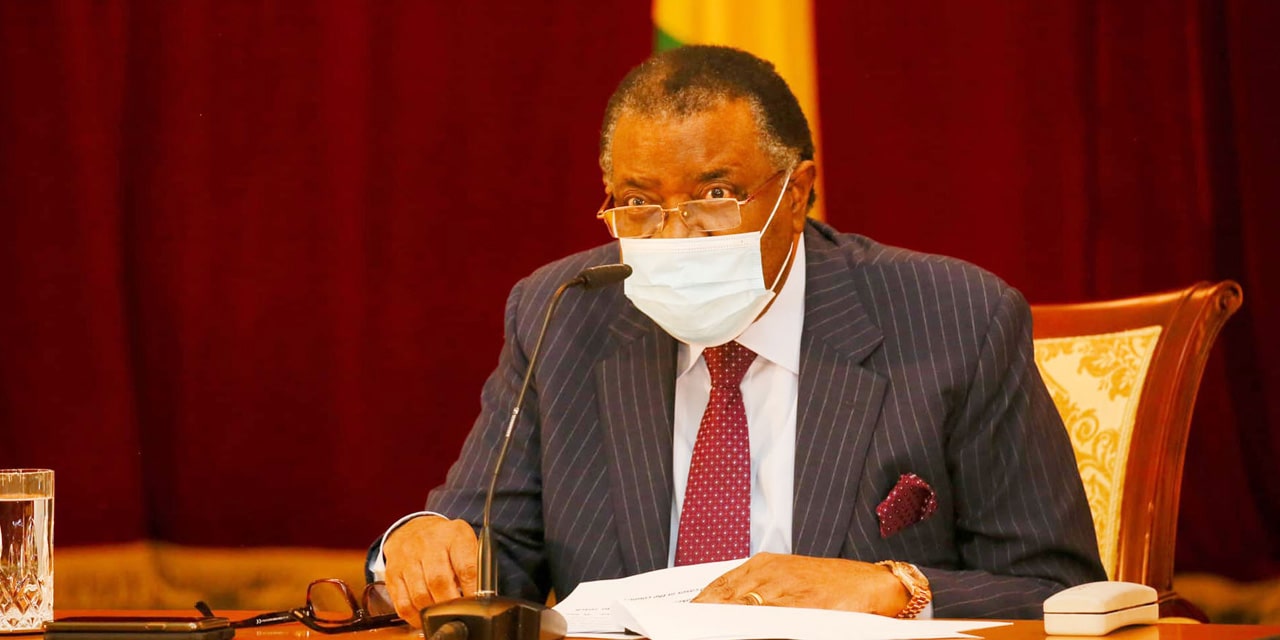Andrew Kathindi
President Hage Geingob has once again extended the current stage three state of emergency lockdown to all 14 regions of the country. The extension is set to last for an additional five days.
The existing state of emergency was supposed to lapse at midnight on Thursday 17 September, coinciding with the end of the six-month state of emergency period.
“Regions which previously recorded lower cases, are now recording rising rates of infection. This is a matter of concern. New cases increased in the Kavango East Region by 138 percent, 78 percent in Otjozonjupa Region, 69 percent in //Kharas Region and by 40 percent in Hardap Region,” said Geingob.
He added, “While the majority of people do not become very ill from COVID-19, others with pre-existing conditions can become gravely ill.”
Geingob originally ordered that the rest of the country revert back to stage three on 12 August following a concerning rise in cases. According to the President, Namibia currently has 9,437 and 98 deaths.
“From 29 August, to date – the number of reported new daily cases has declined, from an average of 227 to 181 cases per day. This represents a 20 percent reduction in the average number of new cases reported daily, countrywide,” said Geingob.
The President argued that the measures he has implemented has led to a slow rate of transmission.
“Geographically, we recorded during the same period, the following reductions in the confirmed number of new infections: Erongo Region by 50 percent, Khomas Region – 24 percent; Omusati Region – 38 percent and in Oshana Region – 32 percent.”
Among the new adjusted measures, the President has adjusted the existing curfew hours from 8pm-5am to 10pm-5am.
Travel, including for business travel purposes, out of Namibia will be permitted via Hosea Kutako International Airport, subject to quarantine at own cost upon return.
Restaurants, cafes and informal food traders may reopen for sit down meals and may sell alcohol for onsite consumption only, including for Windhoek, Okahandja and Rehoboth.
Entertainment events, conferences and workshops may also resume, while nightclubs and gambling houses are to remain closed.
The President however also appeared to hint that there could be a possibility of extending the state of emergency.
“We didn’t decide on that. We’re not considering that now. That’s why we extended the lockdown for five days to monitor the situation. [The public should] Behave so we don’t extend it. If there’s a danger we’ll extend it.”
This comes as Popular Democratic Movement (PDM) leader, McHenry Venaani earlier this week vowed not to support any extension of the state of emergency, and promised to mobilize other opposition parties to vote against the extension of the state of emergency.
“The state of emergency and the various lockdown measures since March have had an adverse impact on the economy. The state of emergency has not helped in bringing down the spread of COVID-19. It is not the state of emergency which will make the country’s Covid-19 figure go down, so we need to go back to normal to save the country’s economy,” Venaani said.
Health Minister Kalumbi Shangula urged Namibians to take responsibility for themselves as the state of emergency is set to lapse.
“As we are moving towards the end of the State of Emergency, the major responsibilities for COVID-19 prevention and control is progressively shifting from government to individuals, families and communities. It will be a sad day if the current gains of the past six months will be eroded by conducts that are not compatible with public health measures,” said Shangula.




